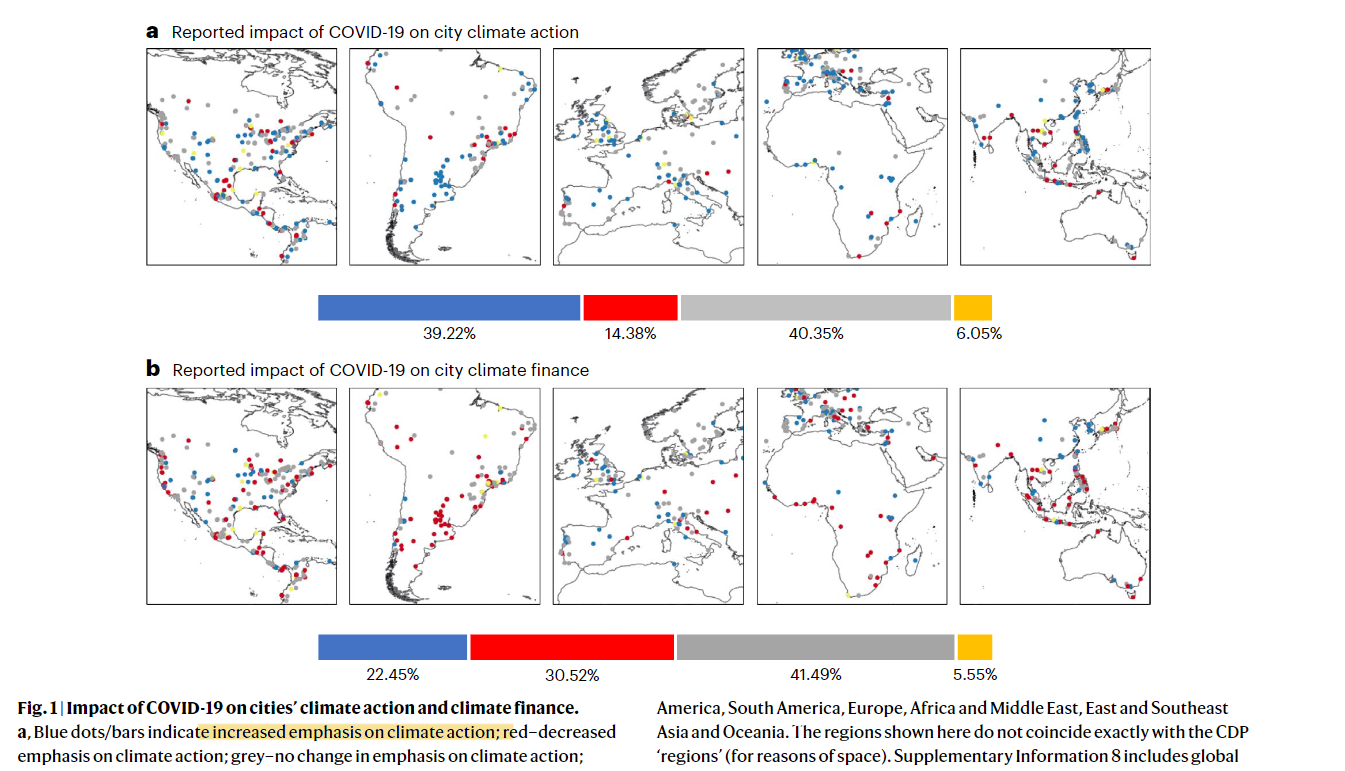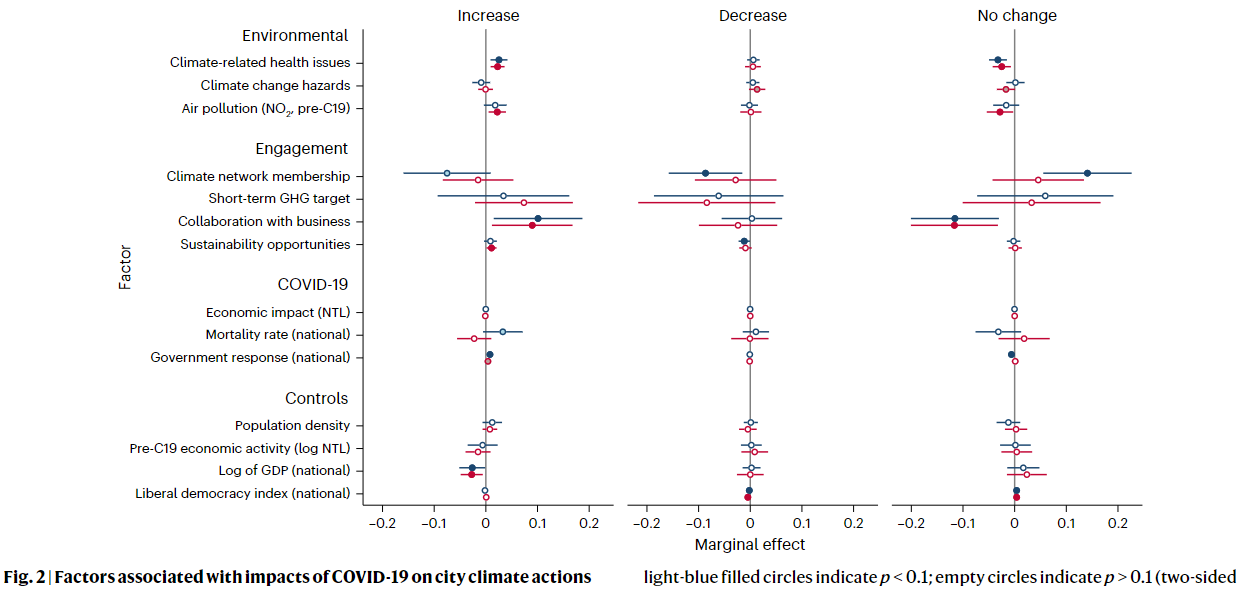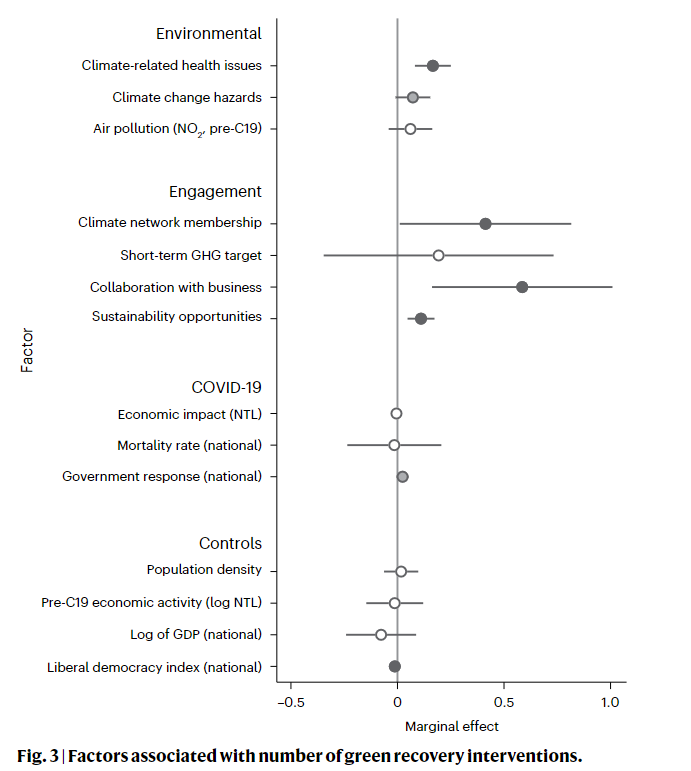Objective:
- How cities have responded to COVID-19 with regards to their climate actions and climate finance and the extent of their engagement in green recovery
- Which factors are associated with different responses to COVID-19
Case:
- 793 cities (carbon disclosure project)
Methodology:
- Multilevel regression: generalized structureal equation model with multinomial logit
- $\chi^2$
Data Source: Open
- CDP platform
- Air pollution (NO2), nightlight and population: ClimActor dataset
- Mortality: Our world in data
- Government response index: Oxford COVID-19 government response tracker
- National GDP: World bank and OECD
Findings:
- More cities reported increased climate action compared to decreased climate action due to COVID
- The opposite is true for climate finance

- East Asia is the region with the highest proportion of cities reporting increased emphasis on climate action and increased climate finance
- West Asia and Southeast Asia and Oceania are the regions with the highest proportion of cities reporing decreased emphasis on climate action

- Cities are more likely to increase their climate actions and finance
- Cities belonging to international climate networks are 8.7% less likely to report decreased emphasis on climate change and 13.8% more likely to report no change in emphasis on climate action
- 42.6% (n=338) of cities report no green recovery policies

Coding Reference:



